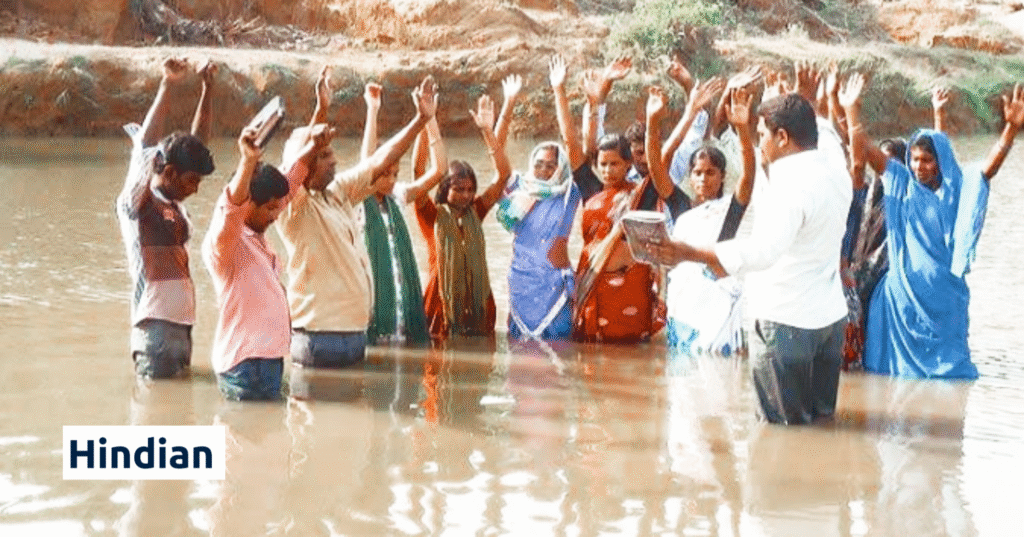In recent years, Bihar has witnessed a concerning rise in religious conversions, particularly in its rural and tribal regions. While the state has long been a bastion of Hindu traditions, the increasing influence of missionary activities poses significant challenges to its cultural and religious fabric. This article delves into the dynamics of these conversions, the concerns they raise, and the imperative for Bihar to address this issue proactively.
The Surge of Missionary Activities in Bihar
Bihar’s rural and tribal communities, often grappling with poverty and limited access to education, have become focal points for various missionary organizations. These groups, sometimes backed by international funding, offer a range of services, including education, healthcare, and financial assistance. While these initiatives may appear benevolent, there are growing concerns about their underlying motives. Reports from districts like Nawada, Jamui, and Gaya indicate that some missionary activities are not merely charitable but are strategically aimed at converting vulnerable populations under the guise of aid.
Coercion, Deception, and Cultural Erosion
One of the most alarming aspects of these conversions is the alleged use of coercion and deception. There have been instances where individuals, especially from marginalized communities, were promised financial aid, healthcare, or employment opportunities in exchange for adopting Christianity. Such practices not only undermine the principles of voluntary conversion but also exploit the vulnerabilities of the poor.
Furthermore, the appropriation of Hindu symbols and rituals by missionary groups has raised concerns among the local population. Traditional practices like yoga, aarti, and the use of Sanskrit verses are being rebranded as Christian activities, leading to fears of cultural dilution and identity loss. This blending of traditions is perceived by many Hindus as an attempt to “Christianize” their faith, causing deep-rooted apprehensions.
The Hindu Perspective: Respect and Authenticity
Hinduism, with its rich tapestry of beliefs and practices, has always been inclusive and accepting of diverse faiths. However, the current wave of conversions has led to a growing sentiment among Hindus that while they respect the right of individuals to choose their faith, they strongly oppose the appropriation and misrepresentation of their traditions. The core concern lies not in the act of conversion itself but in the manner it is being carried out and the subsequent distortion of Hindu symbols and rituals.
Many Hindus feel that their sacred practices are being commodified and repackaged to serve foreign religious agendas. This perceived disrespect and misrepresentation have led to a sense of cultural insecurity and a call for greater protection of their religious heritage.
The Broader Regional Context
Bihar’s situation is not an isolated case. Neighboring states like Jharkhand, Chhattisgarh, and Odisha have also reported similar incidents of religious conversions, often accompanied by allegations of coercion and cultural appropriation. In Jharkhand, for instance, the arrest of a Christian veterinarian in 2024 highlighted concerns over forced conversions in tribal areas. Similarly, in Chhattisgarh, reports of violence against Christian communities and allegations of forced conversions have surfaced, indicating a regional pattern that warrants attention.
The Need for Vigilance and Action
Given the gravity of the situation, it is imperative for Bihar to take proactive measures to safeguard its cultural and religious integrity. This includes:
Strengthening Legal Frameworks: Implementing and enforcing laws that prevent coercive conversions and protect the rights of individuals to practice their faith freely.
Promoting Awareness: Educating the public about the importance of preserving cultural traditions and the potential risks associated with deceptive conversion tactics.
Encouraging Interfaith Dialogue: Fostering conversations between different religious communities to promote mutual respect and understanding.
Supporting Vulnerable Communities: Providing economic and social support to marginalized groups to reduce their susceptibility to exploitative conversion practices.
Bihar stands at a crossroads. While the state has always been a symbol of religious tolerance and cultural richness, the rising tide of missionary activities poses challenges that cannot be ignored. It is crucial for the people and leaders of Bihar to recognize the importance of preserving their cultural and religious heritage while respecting the rights of others. By taking informed and balanced actions, Bihar can ensure that it remains a land where diverse faiths coexist harmoniously, without compromising its rich traditions.



